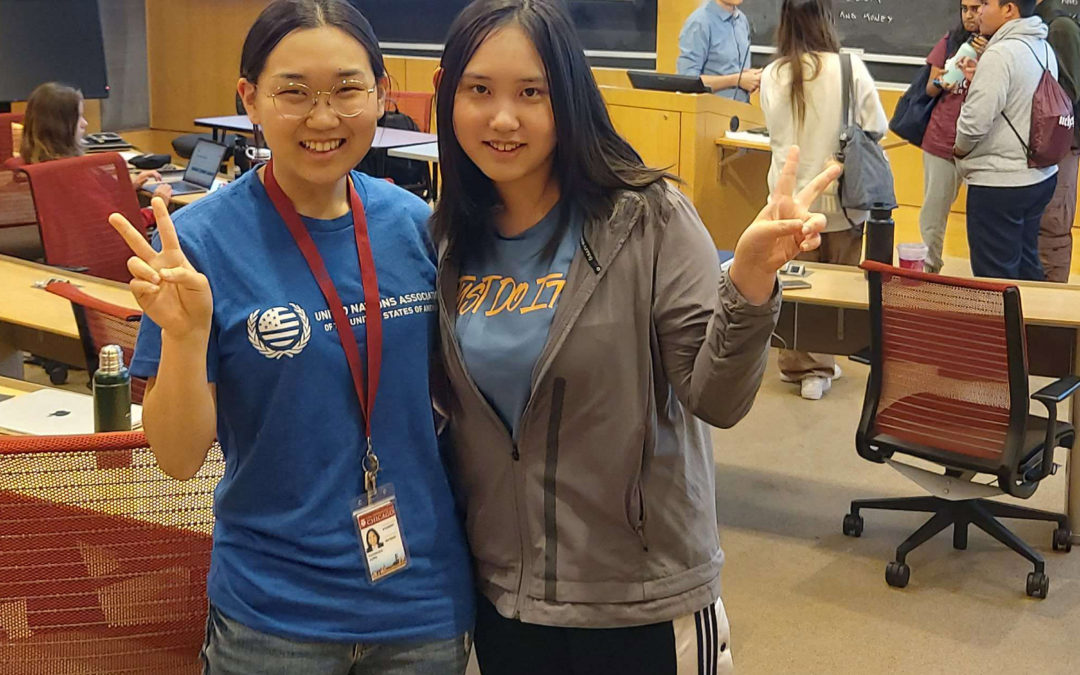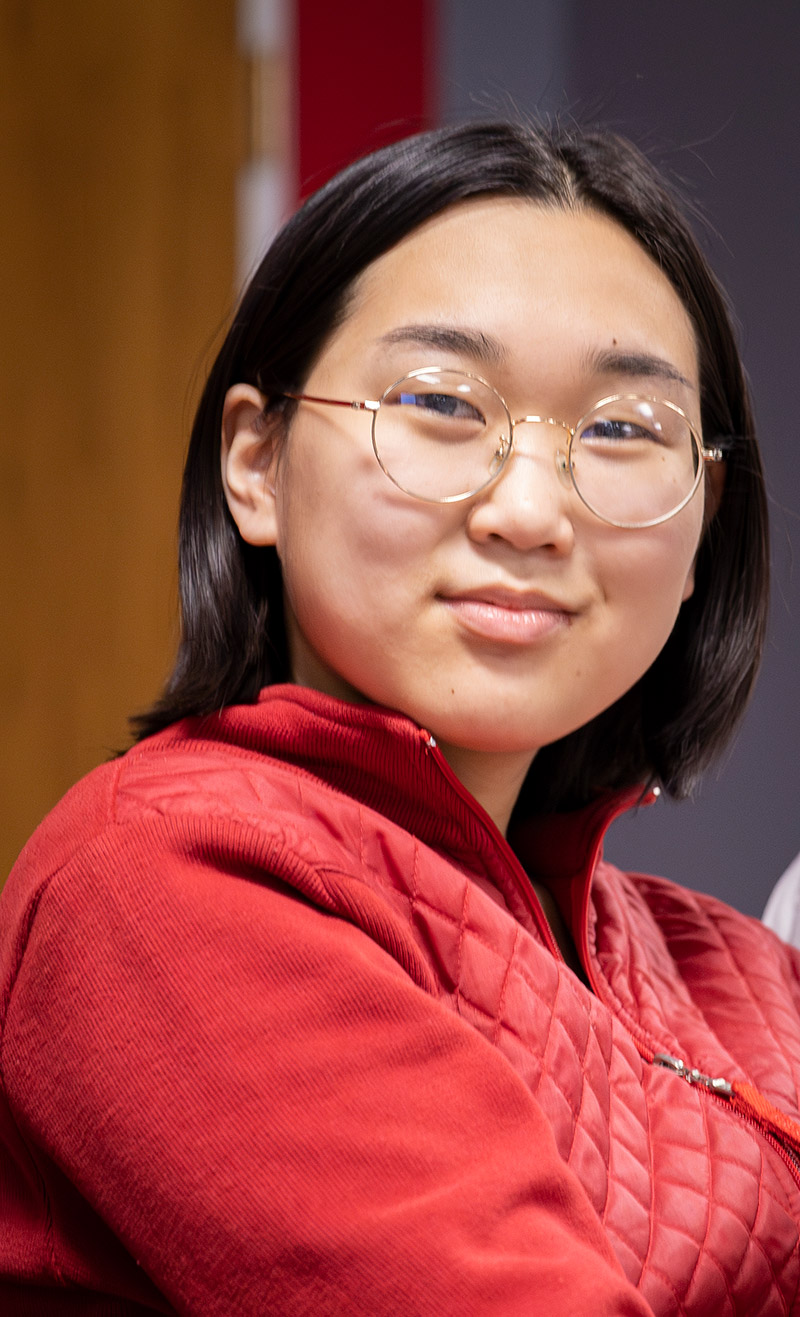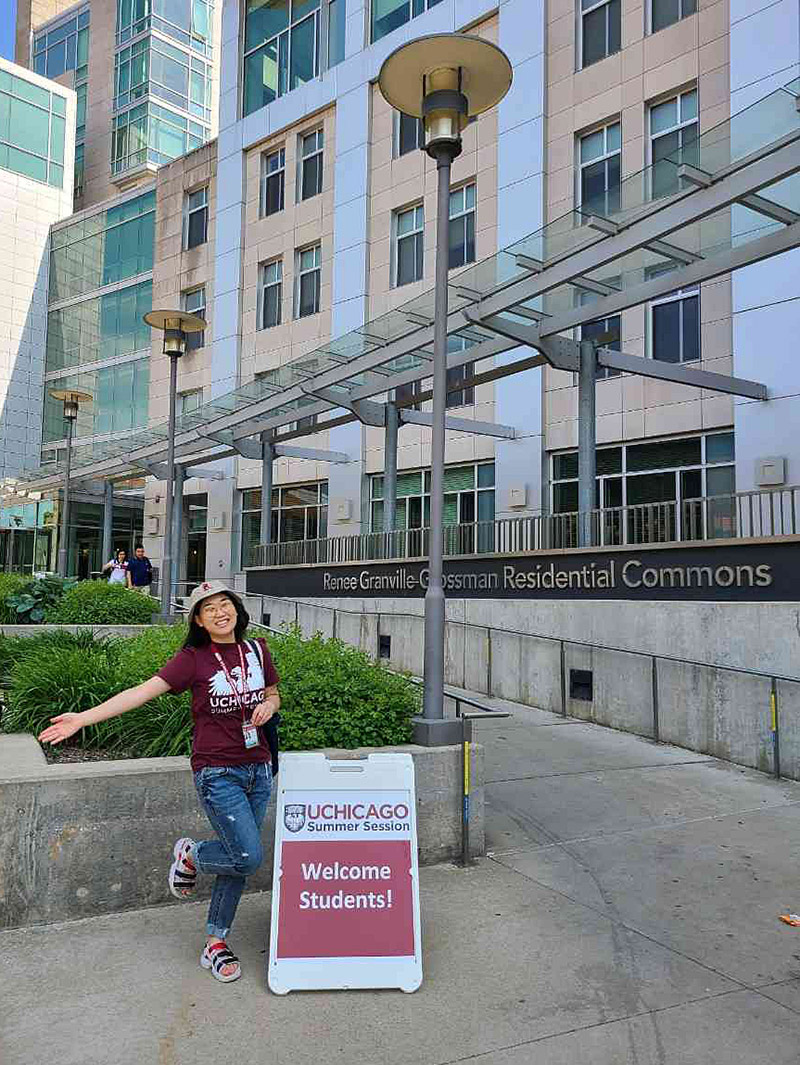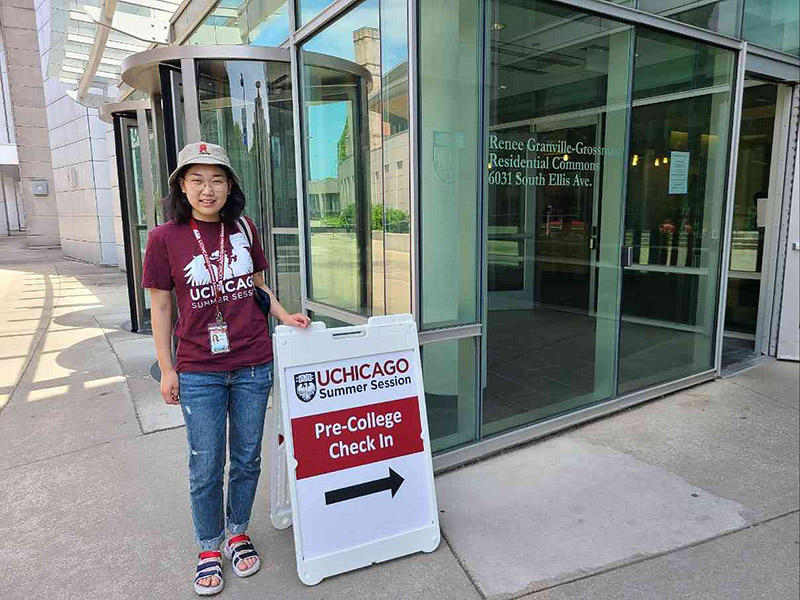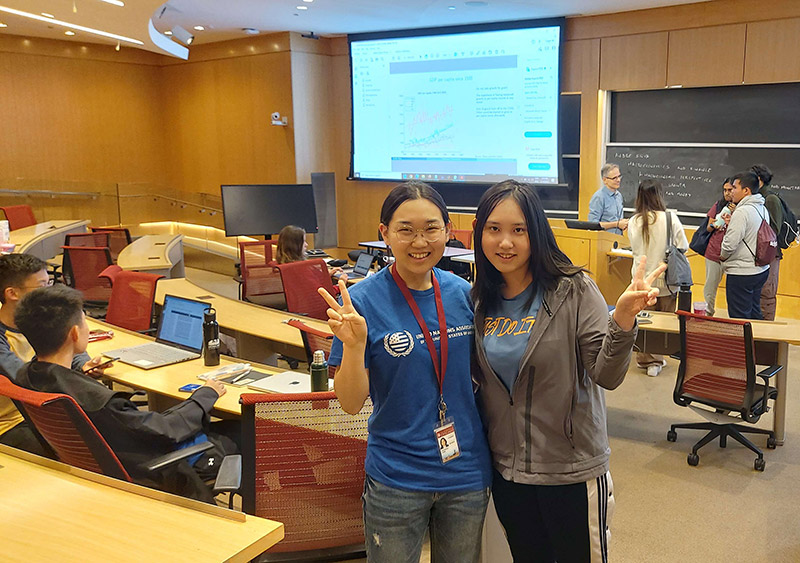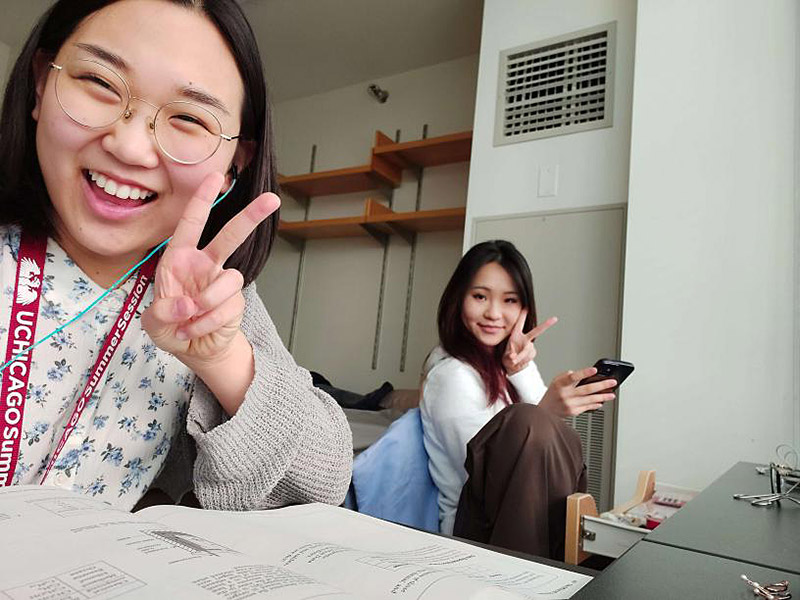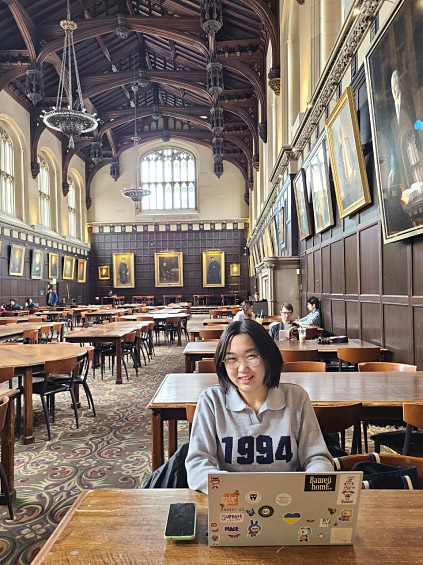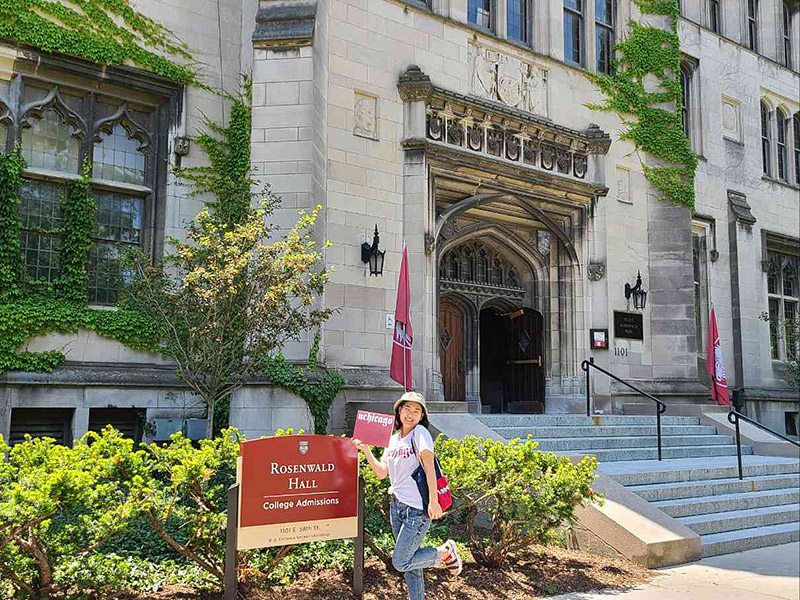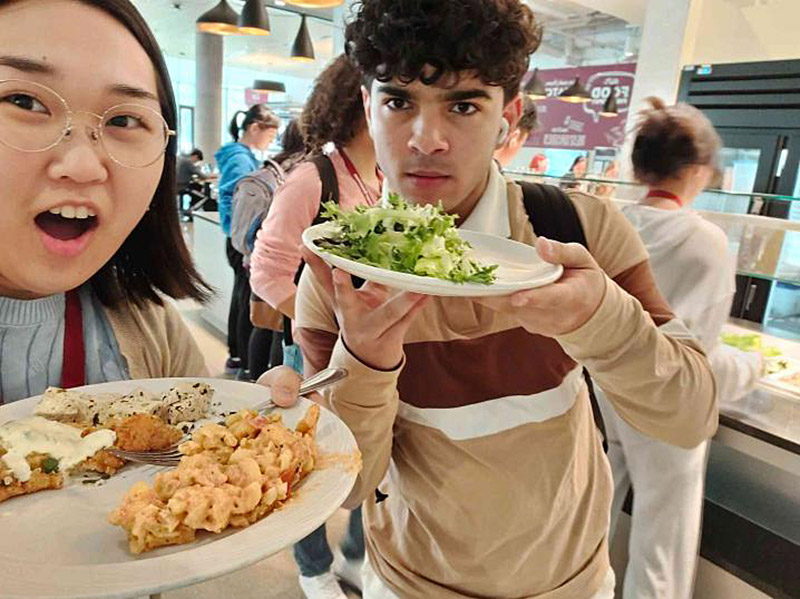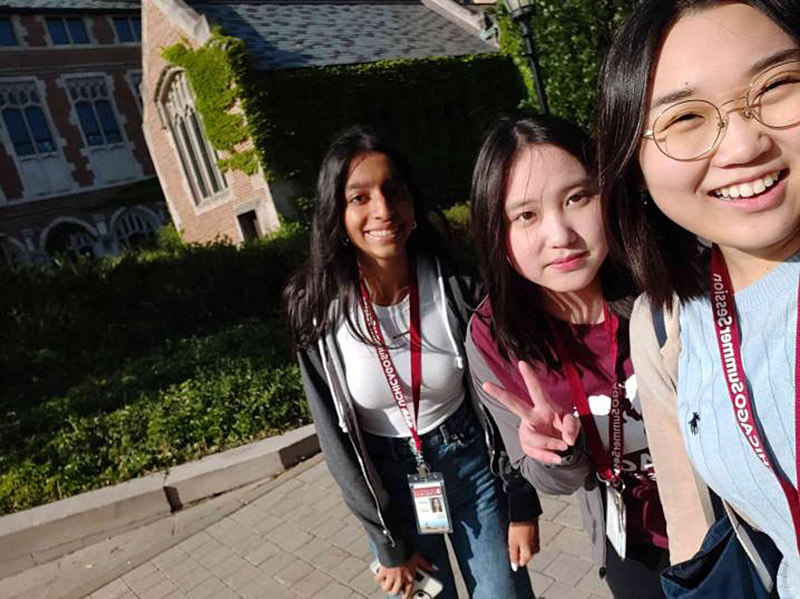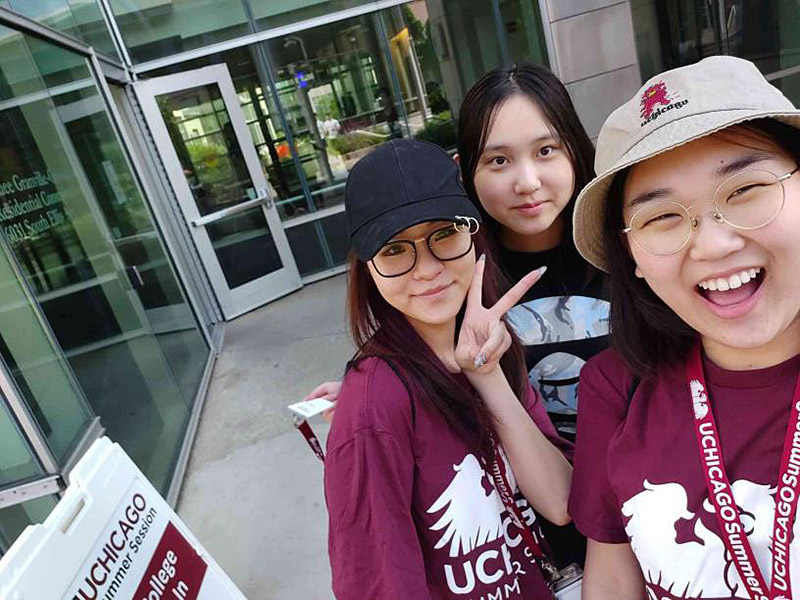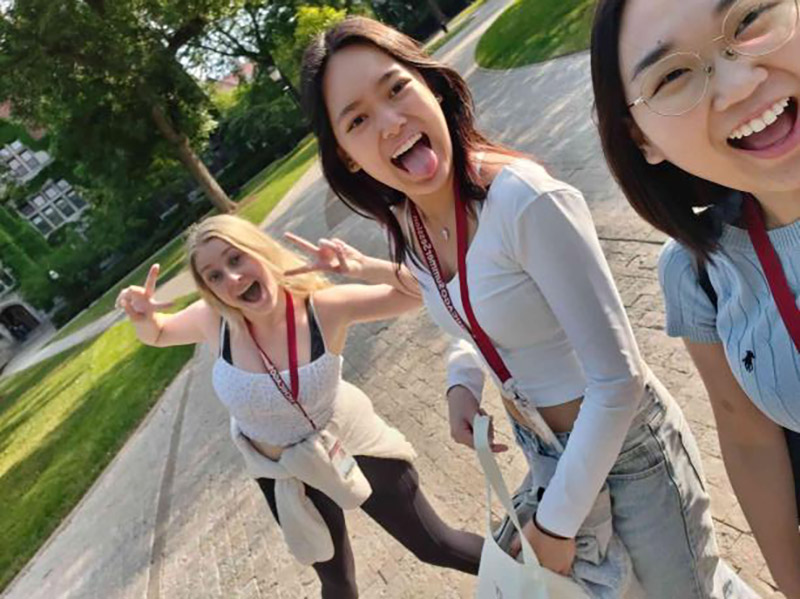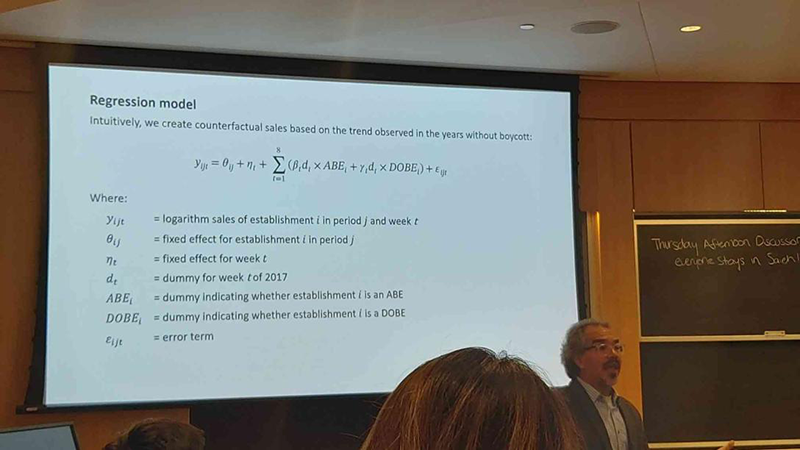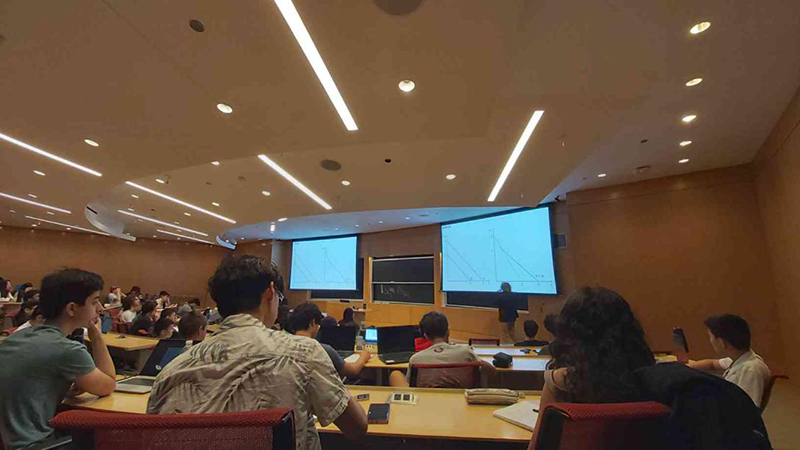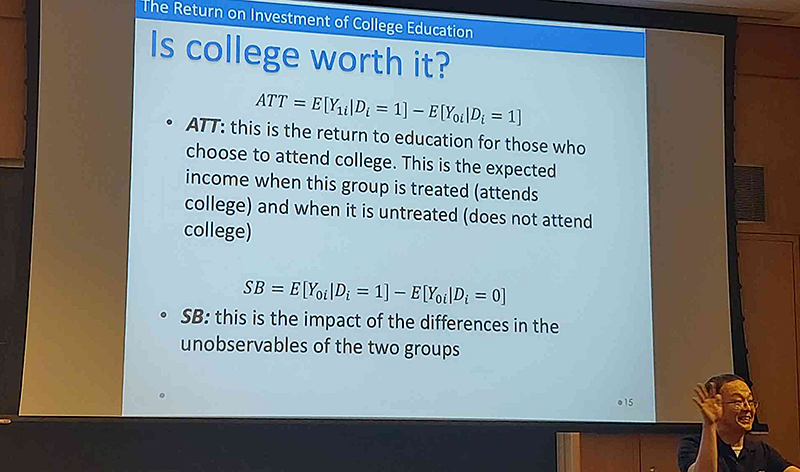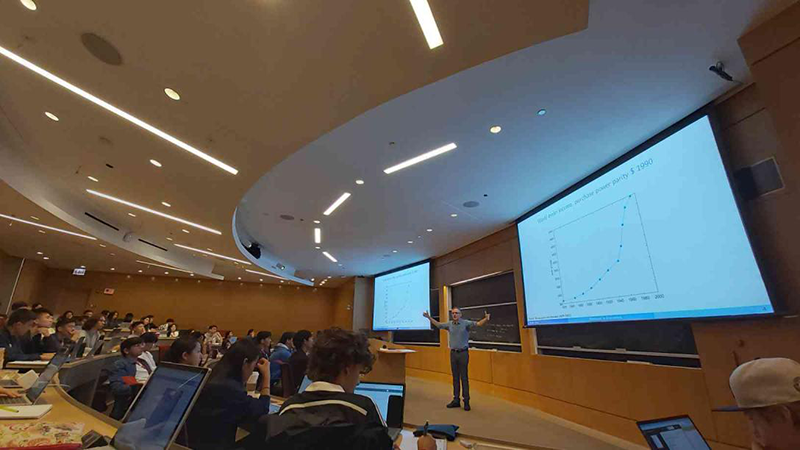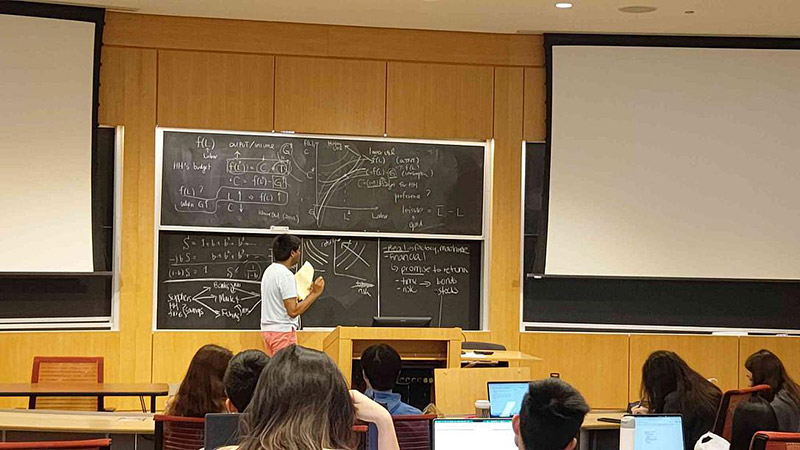Yoonseo Jung reports on her experiences while studying “Pathways in Economics” at the University of Chicago. Her first economics course, Yoonseo says she is enjoying “listening to lectures from real-time UChicago professors and other wonderful guest speakers.”
“With a substantial size of 70 students, our class is the largest in the summer session. To accommodate this significant number, we are divided into four discussion groups, each led by a different TA. What sets our class apart is that we do not have a fixed lecturer; rather, every two days, we are instructed by a different professor or current UChicago Ph.D. students. Our TA, Neville, recently graduated from the University of Chicago in Economics and Public Policy. He provided us immense help clarifying concepts from previous lectures and provided a deeper understanding of UChicago’s academic landscape,” Yoonseo reports.
“In the first week of class, we delved into the Economic Approach and, more importantly, its applications. The five elements of the economics approach are: 1) Scarcity, 2) Stable preferences of individuals, 3) Purposive behavior, 4) Equilibrium, and 5) Empirical validation. As economists, we are interested in the self-interest of individuals. We uncovered the practical applications of budget constraints, optimization techniques, and other mathematical concepts. As we examined how individuals make choices within the constraints of limited resources, we also applied the simple theory of irrational behavior. By employing theories of bounded rationality and behavioral economics, we gained insights into the complexities of decision-making and the deviations from traditional economic models. So, whether we’re analyzing consumer behavior or studying market dynamics, our toolkit of economic concepts and theories equipped us to navigate the intricate interplay between rationality and human behavior. We were able to visualize how the economic principles stated above can be applied to non-market activities, such as marriage, vice and addiction, crime, discrimination, human capital, etc. A key conclusion of the UChicago price theory is that individuals follow the economic approach when making decisions and that they are always attempting to maximize utility,” Yoonseo explains.
“We also dove into game theory for an entire day’s worth of lecture. And, of course, no discussion of game theory would be complete without the prisoner’s dilemma (PD). Using the PD as a baseline example, we dove into further (and much more advanced) examples and applications of game theory. A central concept crucial in solving these problems was the identification of the Nash equilibrium, the state in which no player has an incentive to unilaterally change their strategy. This equilibrium point holds implications for decision-making in various contexts, from business negotiations to political rivalries,” Yoonseo adds.
Yoonseo says that the workload for her course has been extremely rigorous. “We are assigned 100+ readings everyday before class and receive weekly problem sets, all of which are worth 150 points. Additionally, we are one of the few courses on campus that has both unit exams and a final group presentation,” Yoonseo says. She will explain more about this in future reports.
After her second week at the University of Chicago, Yoonseo says that she has been getting adjusted to “dorm life and living independently,” while transitioning from a “night owl” to an “early bird.”
“This week, we learned about experimental economics, economic growth, financial crises, and many other topics. Experimental economics provided a unique perspective on understanding economic behavior by conducting controlled experiments in a controlled environment. During our lectures, we explored various experimental methods used in economics research. We learned about the design and implementation of experiments to study decision-making, risk preferences, game theory, and market behavior. The idea of creating artificial economic scenarios to observe and analyze how individuals and groups make choices was both enlightening and thought-provoking,” Yoonseo exclaims!
“One aspect that stood out to me was the use of incentives and rewards in experimental economics. It was interesting to see how altering the incentive structure can influence decision-making and outcomes. We discussed different experimental designs, such as dictator games and ultimatum games, which provided insights into human behavior and the role of fairness and self-interest in economic interactions,” Yoonseo adds.
Yoonseo says she was particularly fascinated by “how experimental economics bridges the gap between theory and real-world applications. “By conducting controlled experiments, economists can validate economic theories, and gain insights into complex economic phenomena. It offers a way to study economic behavior in a controlled environment, allowing researchers to isolate variables and draw meaningful conclusions. The interactive nature of experimental economics was another aspect that made it engaging. We had the opportunity to participate in class experiments and analyze the results, which enhanced our understanding of the concepts discussed. It was intriguing to observe the dynamics of decision-making and how individuals’ choices in experiments mirrored or deviated from economic theories,” Yoonseo explains.
The final week left Yoonseo with “a bittersweet mix of emotions” as she tried to find words to describe her incredible experience attending Pathways in Economics. “Every aspect of this course, from the classes and professors to our TA and the friendships that blossomed into a second family, the dorm life, and the captivating campus, will forever hold a special place in my heart,” Yooneo says.
“In our final week, we were assigned to present with a partner on a topic we learned in class. Our professor and TA deliberately provided a vague prompt, urging us to truly embrace our economic knowledge. Luckily, fate smiled upon me, as I was paired with one of my closest friends from the program. Together, we conducted an experimental economics case study that examined the correlation between crime rates in locations of medical schools and the rankings of their emergency medicine residency programs. I vividly recall staying up until 3am with my partner, eating snickerdoodle cookies, as we scrambled to craft our presentation slides and finalize the case study proposal,” Yoonseo reports.
While at UChicago, Yoonseo enjoyed her independence, exploring the campus on her own and taking in the “breathtaking scenery, with its gothic-style architecture and buildings that seemed plucked from the pages of Harry Potter.”
“While I loved my economics lectures, it was the dorm life that truly captured my heart during my UChicago experience. Our econ class was the largest on campus, which resulted in frequent encounters with my fellow classmates in the dorm study lounge or the elevator. It was beneficial when organizing study groups for homework or test review, and these people quickly became my closest friends. Often, we found ourselves caught up in conversation about life rather than focusing on work, but those moments of connection became an integral part of my time here. Our dorm houses hosted “study breaks” twice a week, during which our residential assistants provided snacks for us to indulge in while we worked. Laughing with friends as we savored s’mores cookies or fruit kabobs created unforgettable memories,” Yoonseo explains.
“When I initially set foot on UChicago’s campus on orientation day, little did I know that the memories forged here would become so deeply personal to me. The most challenging aspect of this course wasn’t the final macroeconomics exam; it was saying goodbye to the three weeks that have indelibly shaped me. Through this experience, I didn’t simply acquire knowledge about fiscal stimulus or learn to calculate the impact of a boycott; rather, I gained a multidimensional view of the world and the diverse cultures of students hailing from all corners of the globe,” Yoonseo adds.
“Looking back, I am overflowing with gratitude for the life-changing experiences and the lasting friendships. More importantly, I extend my heartfelt appreciation to the GFF for their generous tuition sponsorship, which made this incredible opportunity possible. The University of Chicago and the Pathways in Economics course have truly taught me the incredible power of knowledge, connections, and personal growth. They’ve left a lasting impression that I will cherish forever. Though I must bid farewell (for now), I carry with me the invaluable lessons and memories that will continue to shape my path forward,” Yoonseo says.
We are delighted to hear that your experience at the University of Chicago has helped you develop knowledge, connections, and personal growth, Yoonseo. We wish you much success in your continued education!
>> Read Yoonseo Jung’s final report (PDF file,140 KB).
>> Learn about other students’ experiences in the GFF Scholarship Program.

